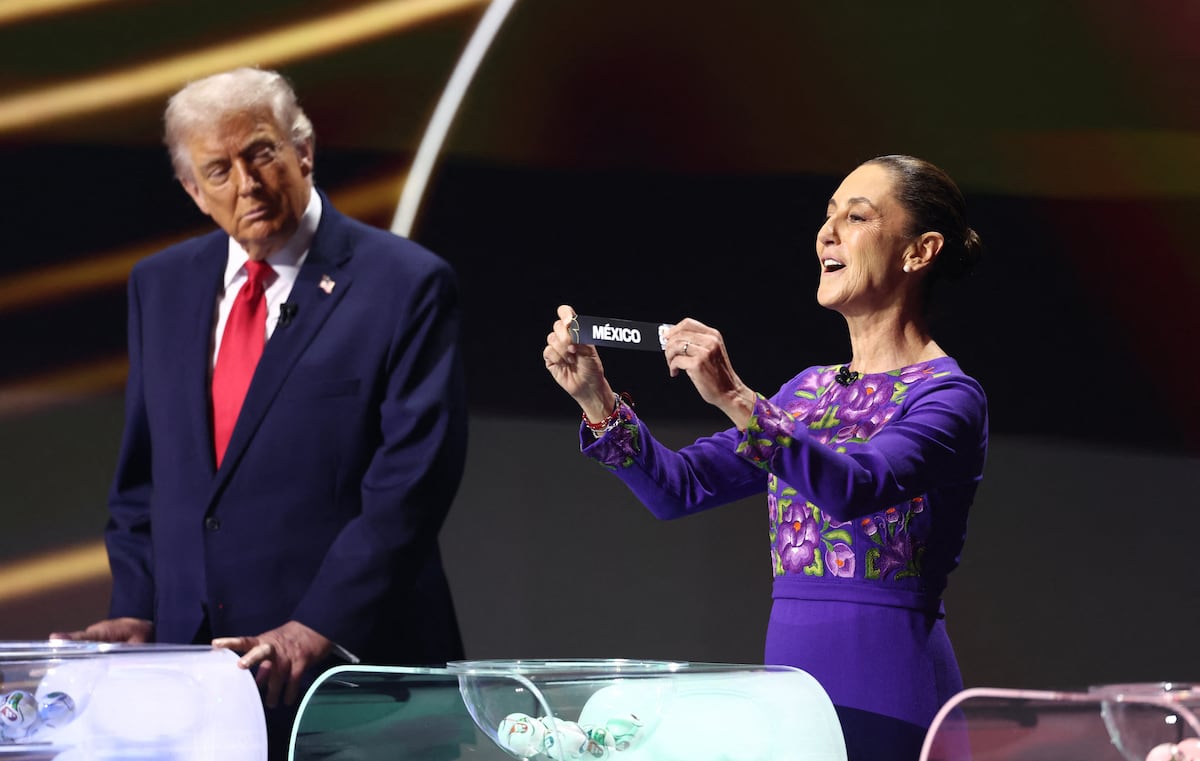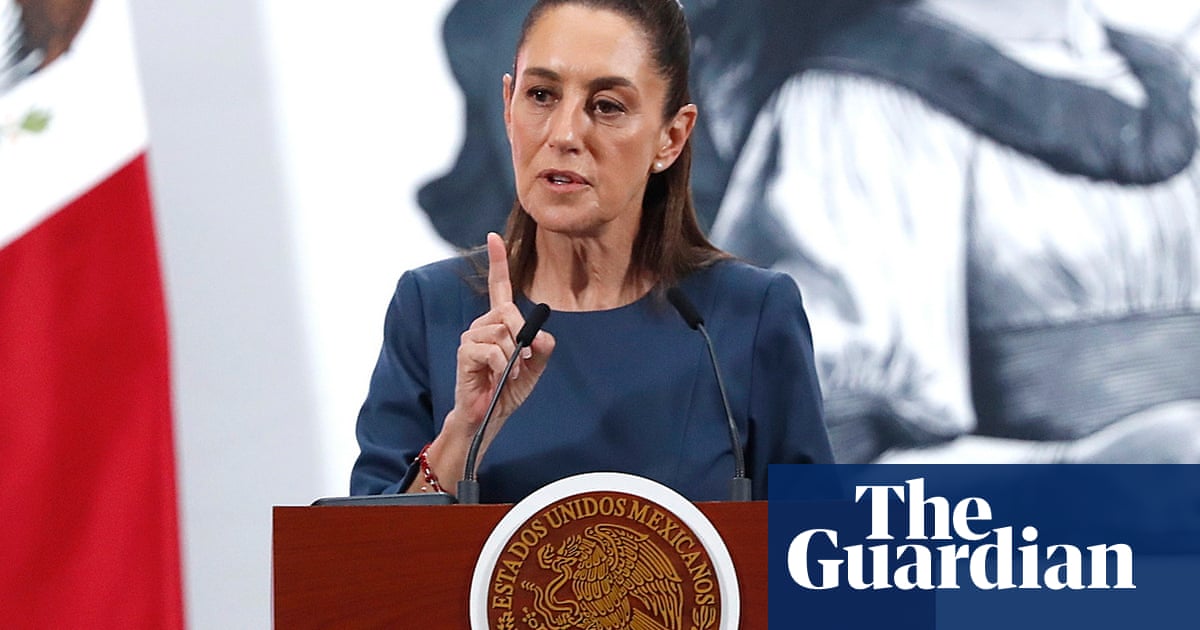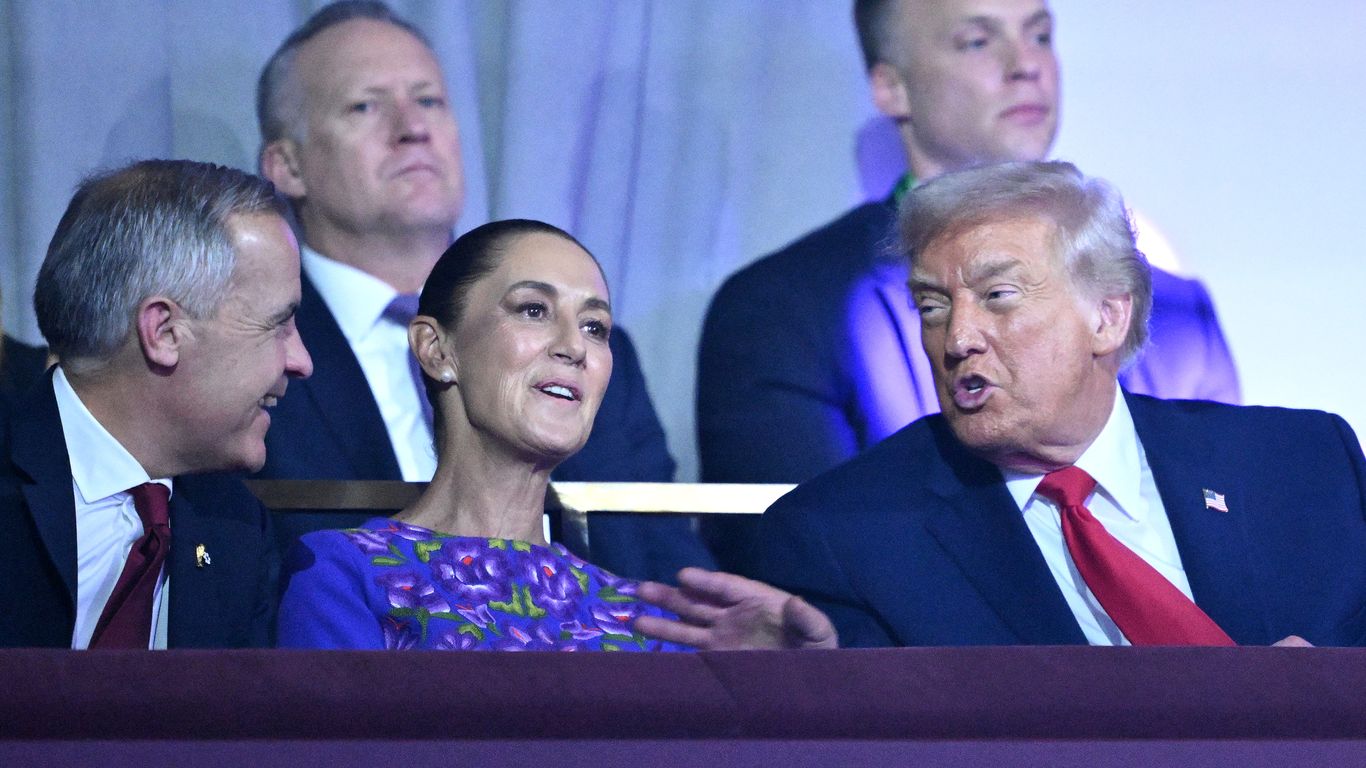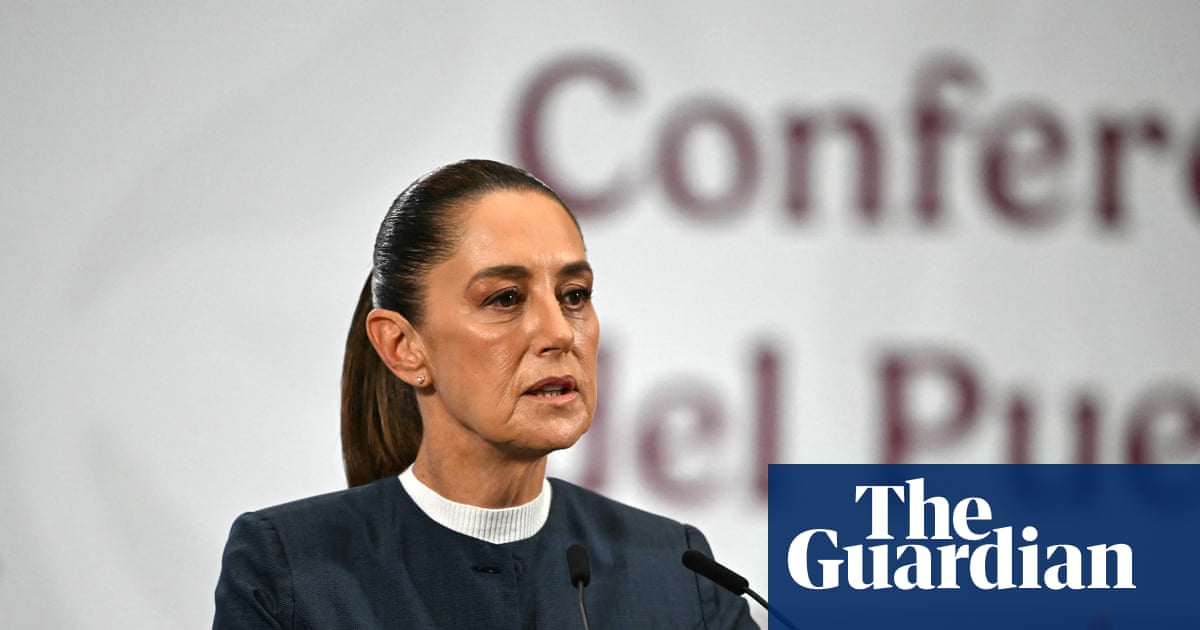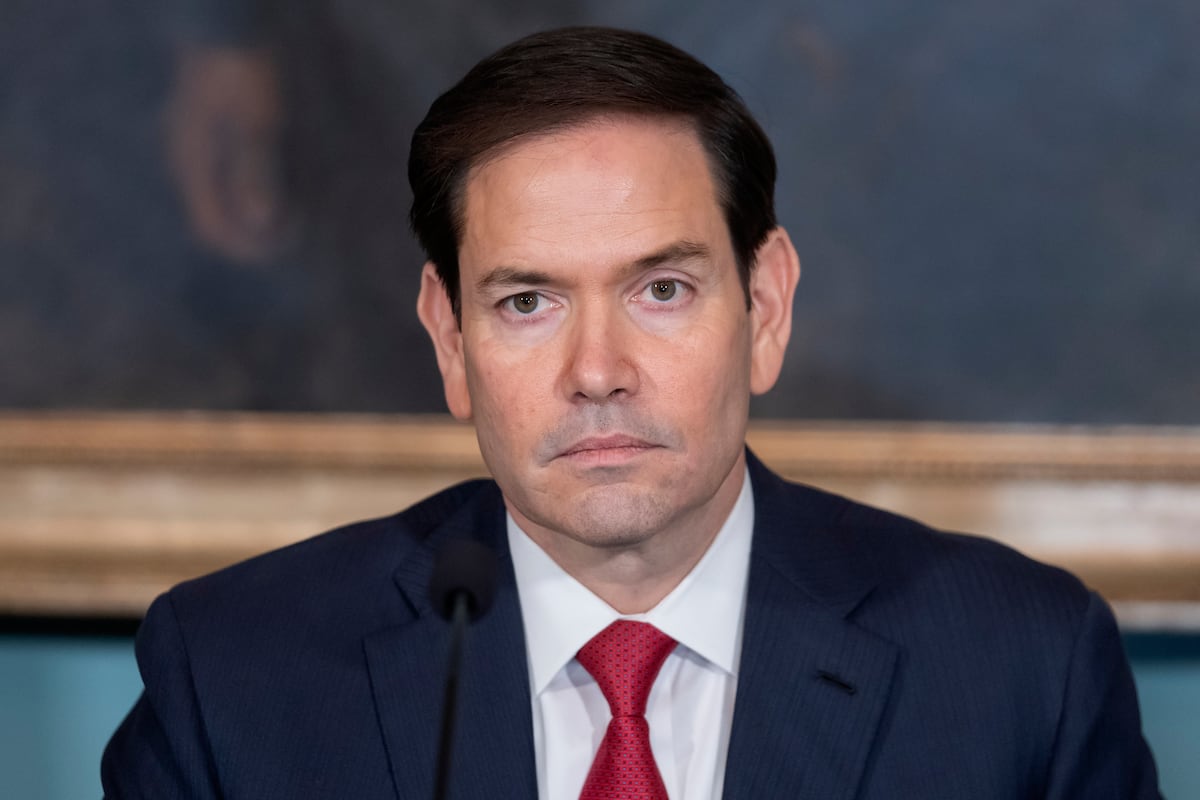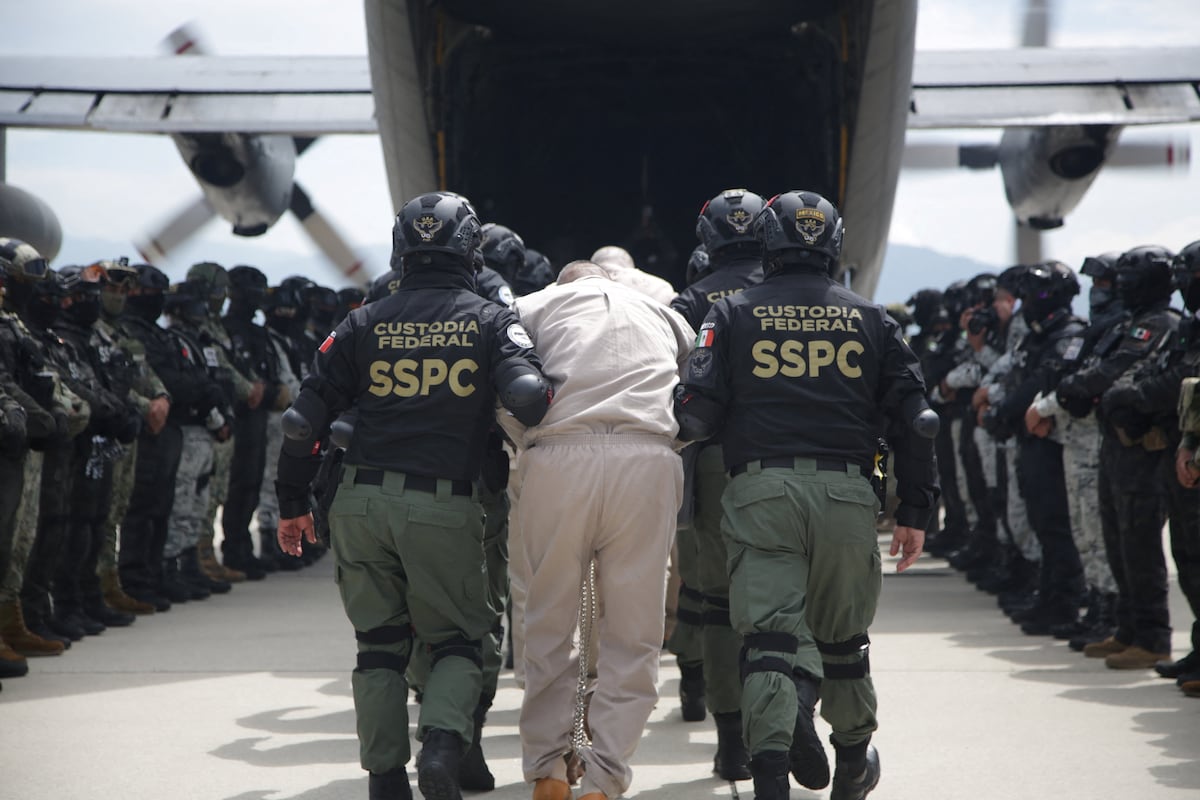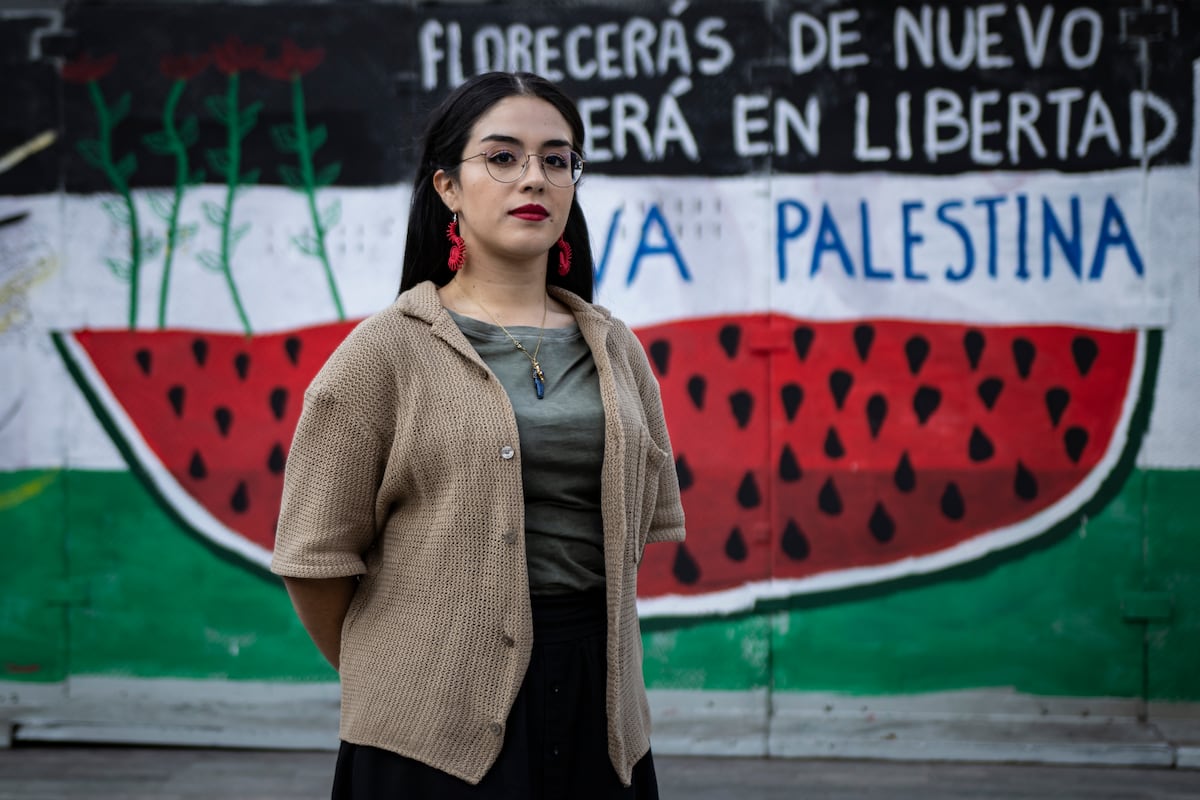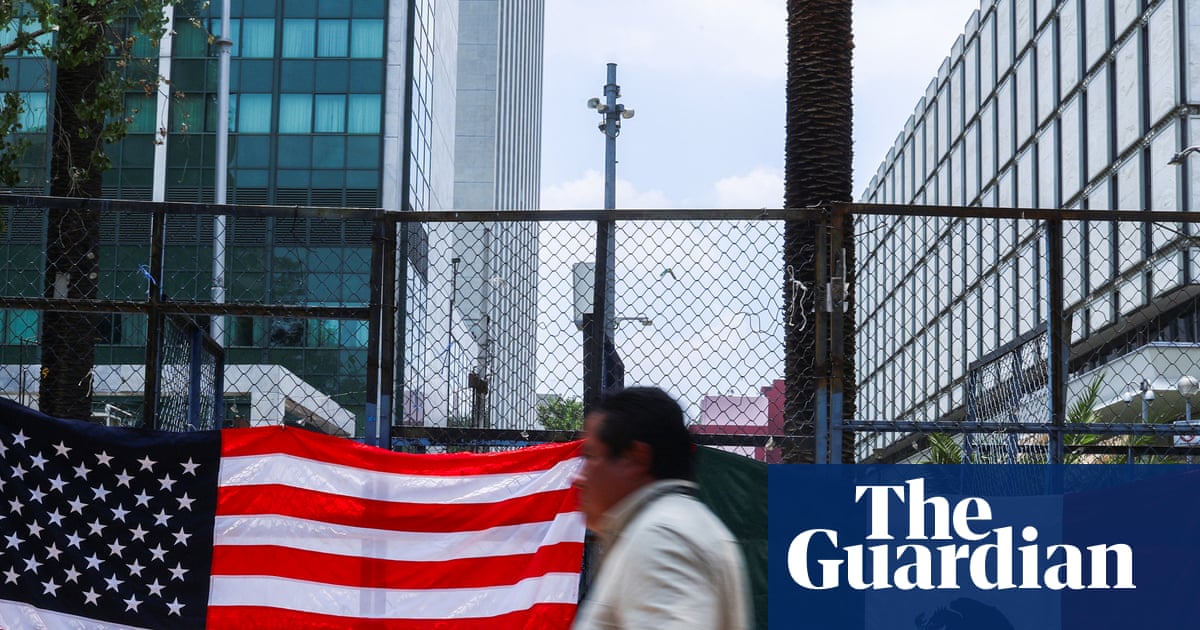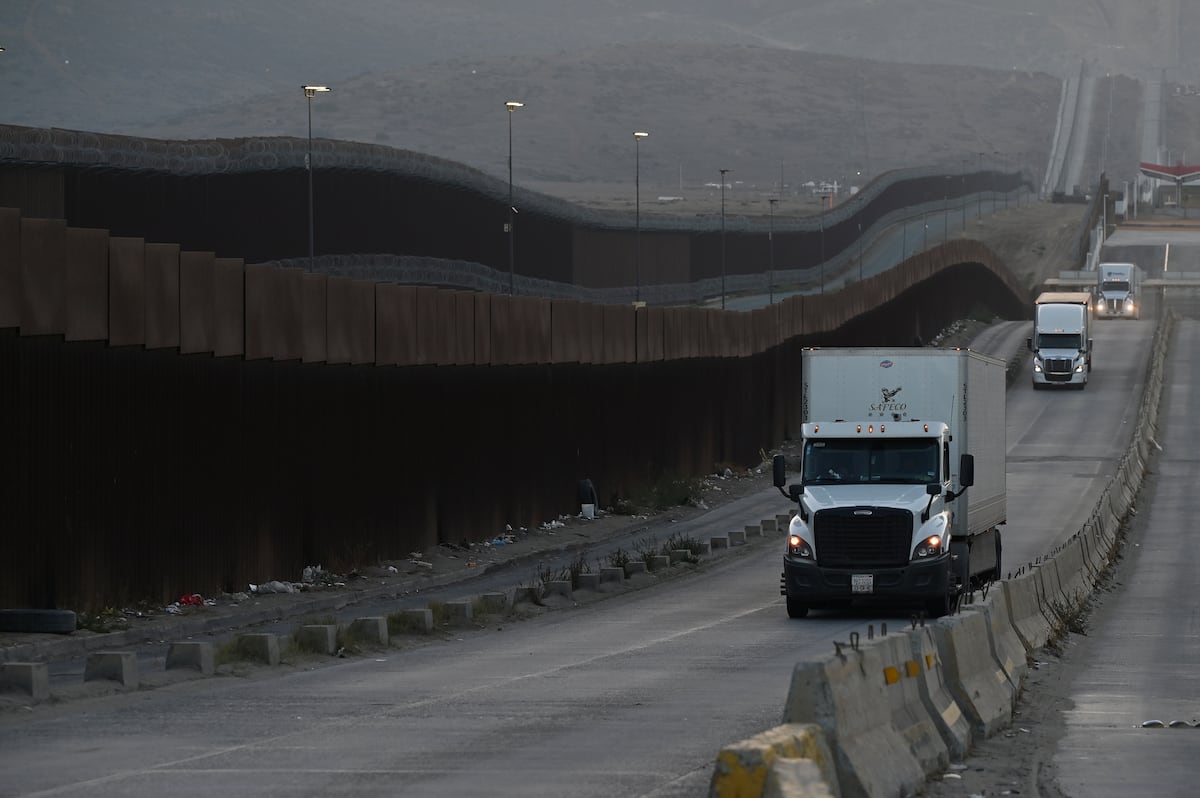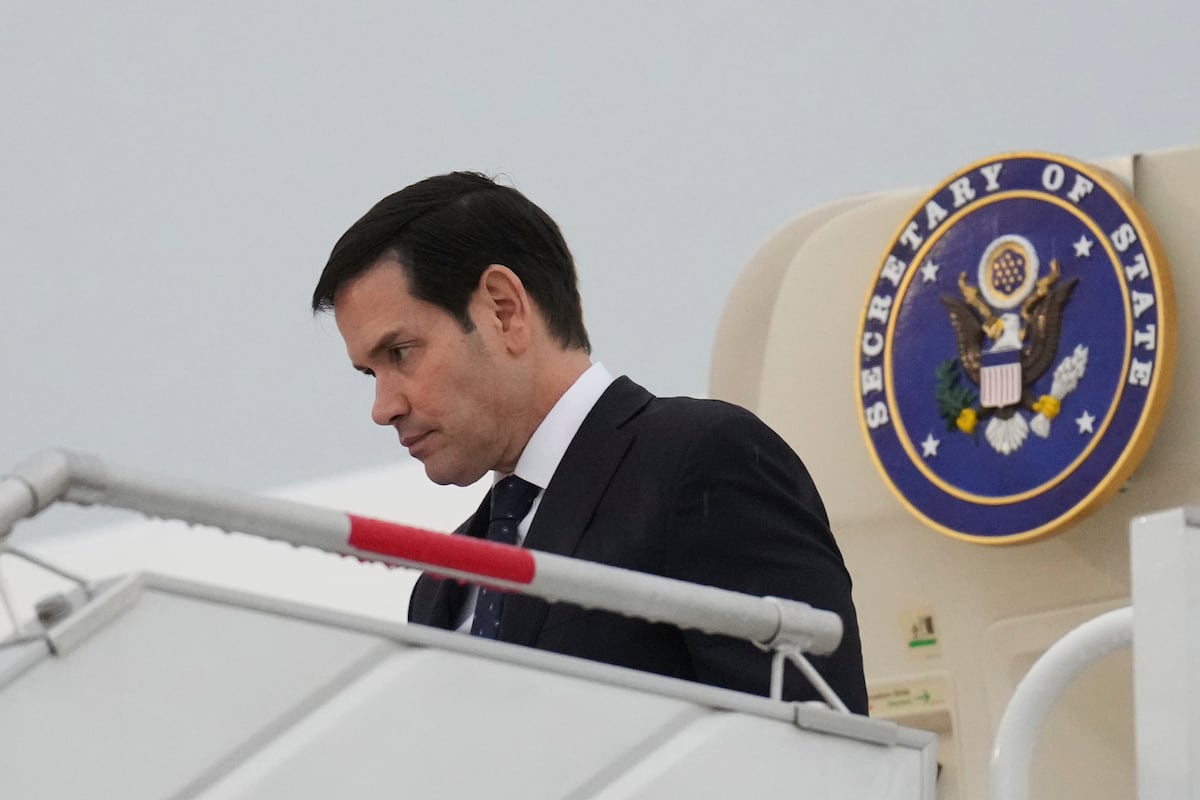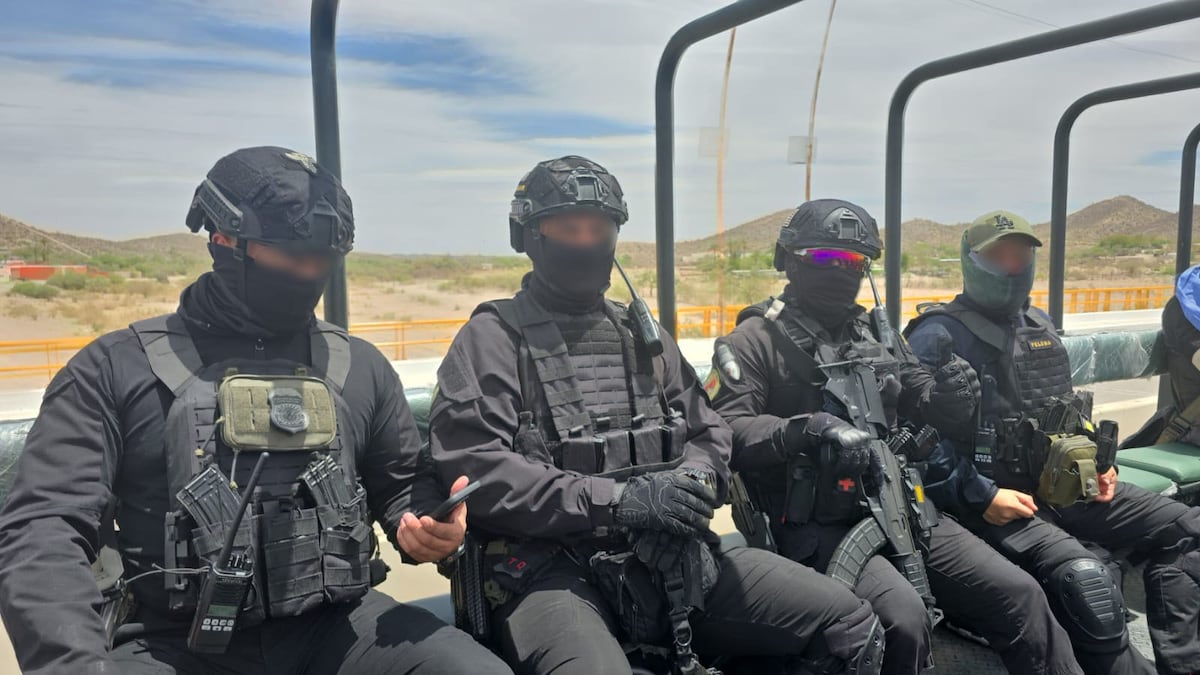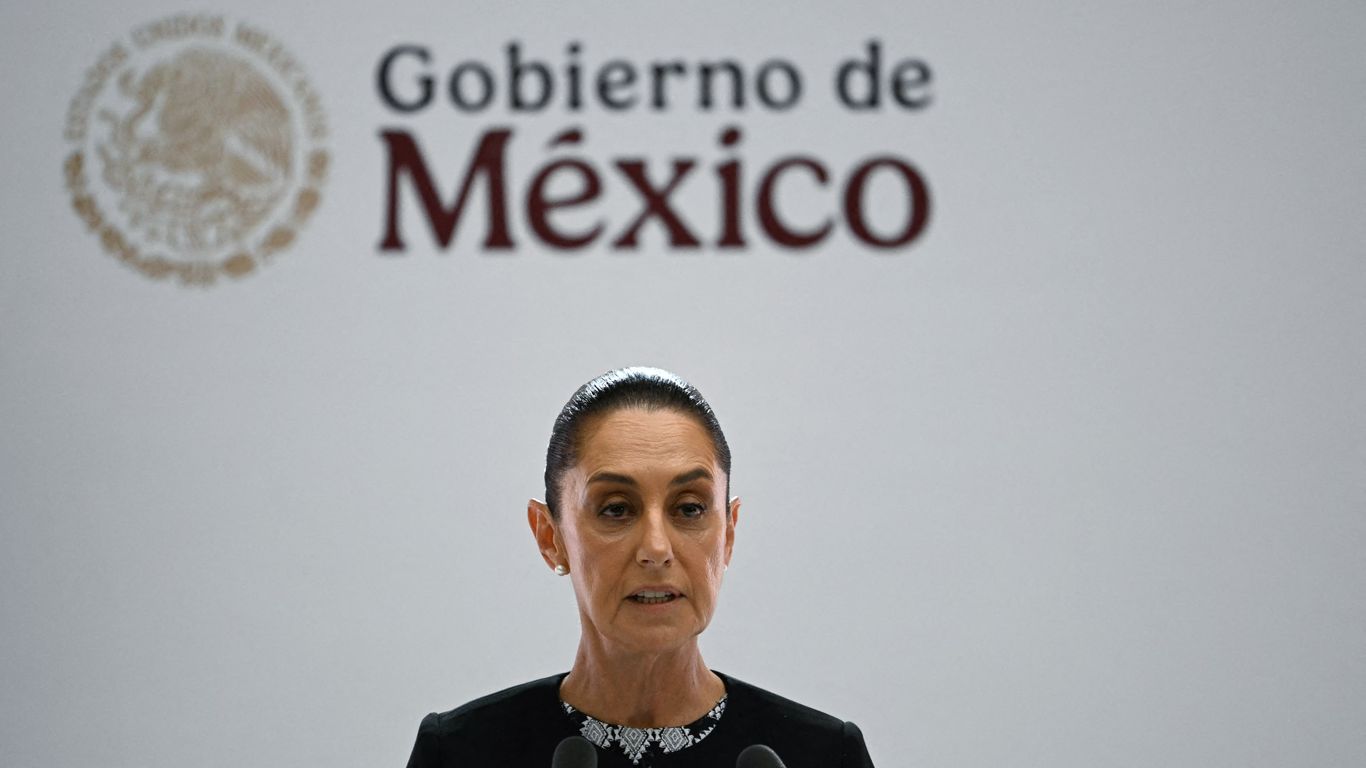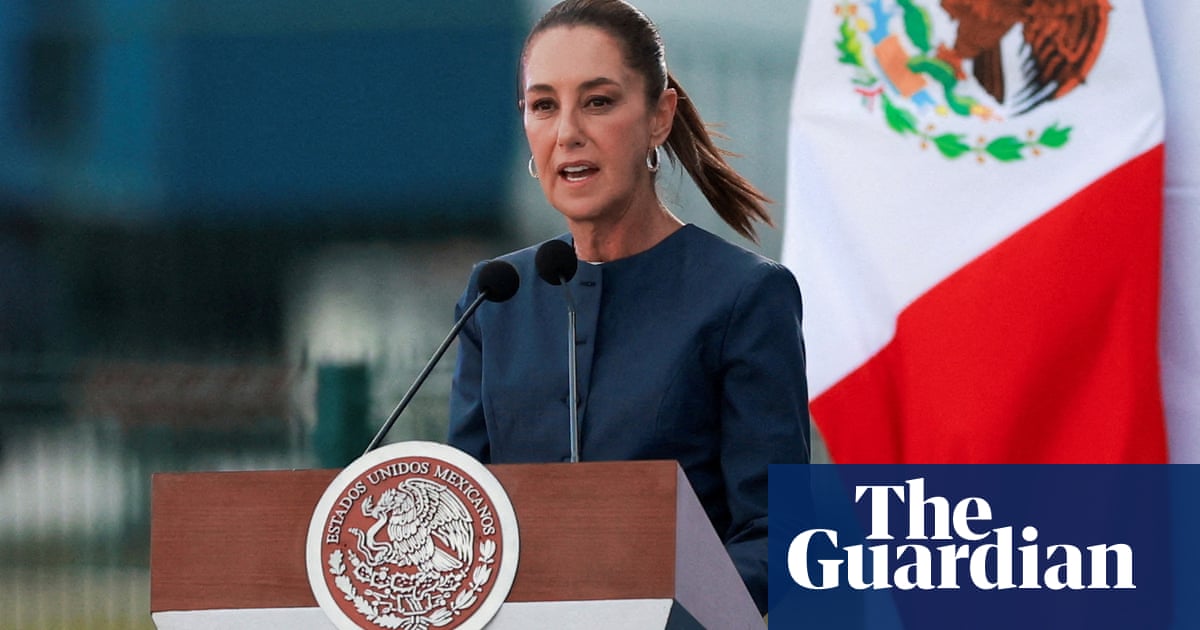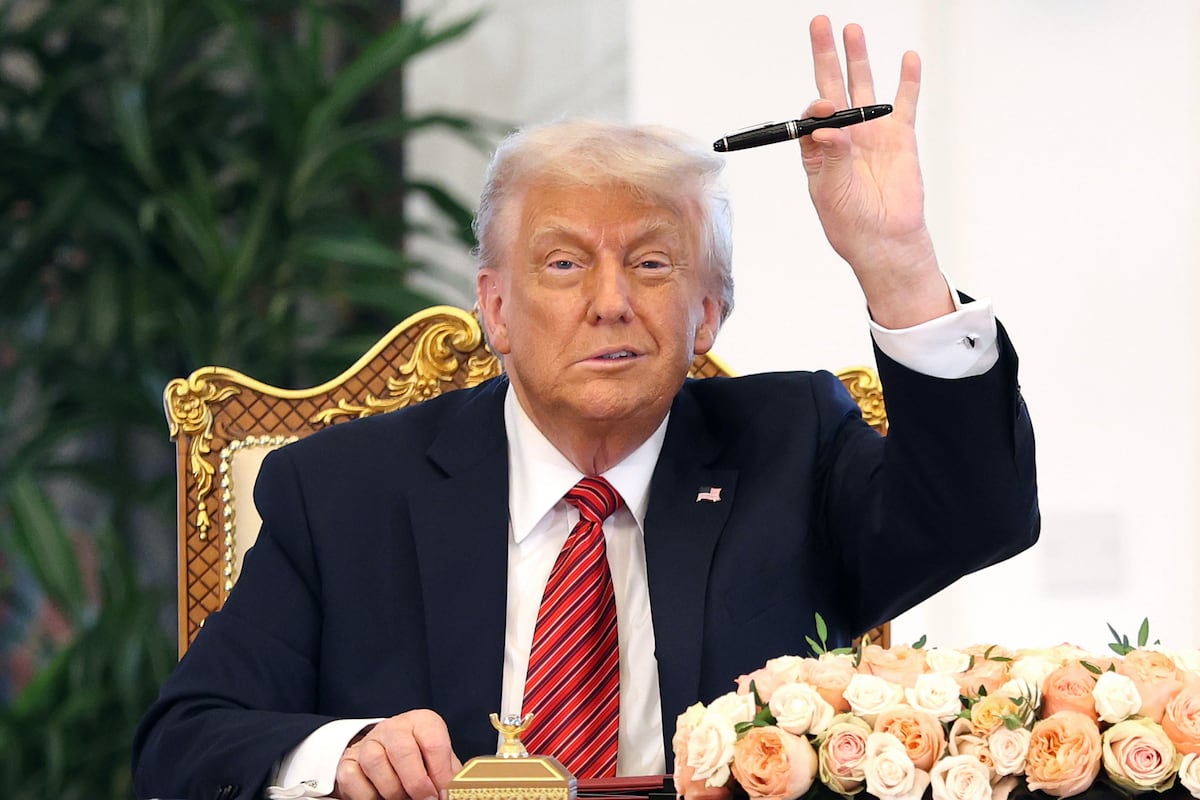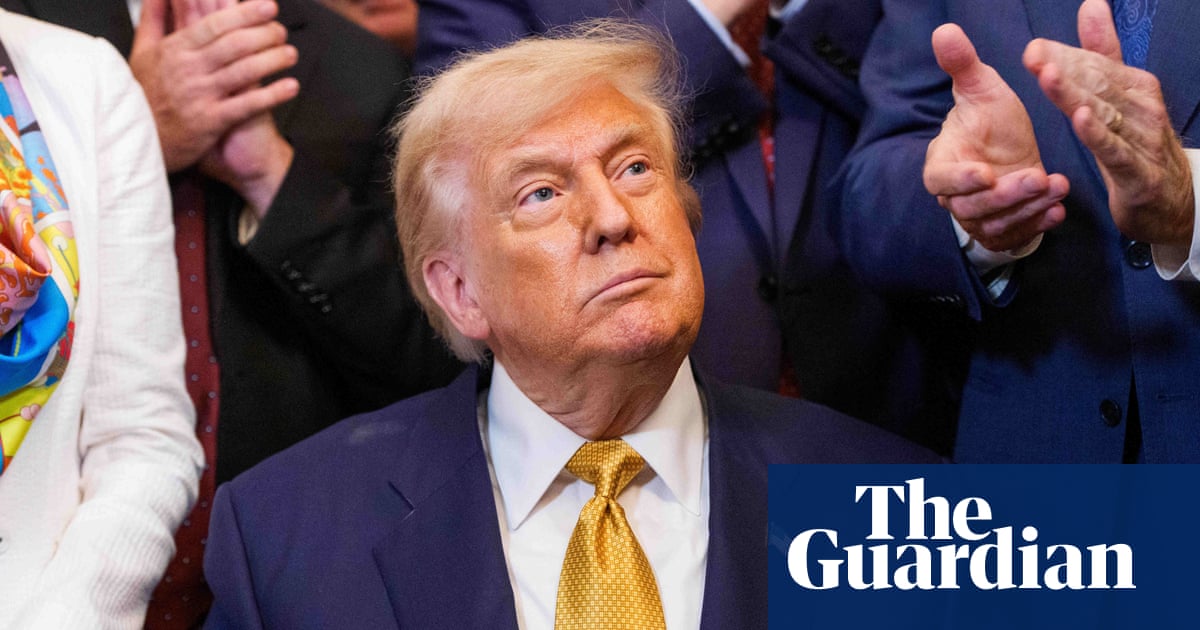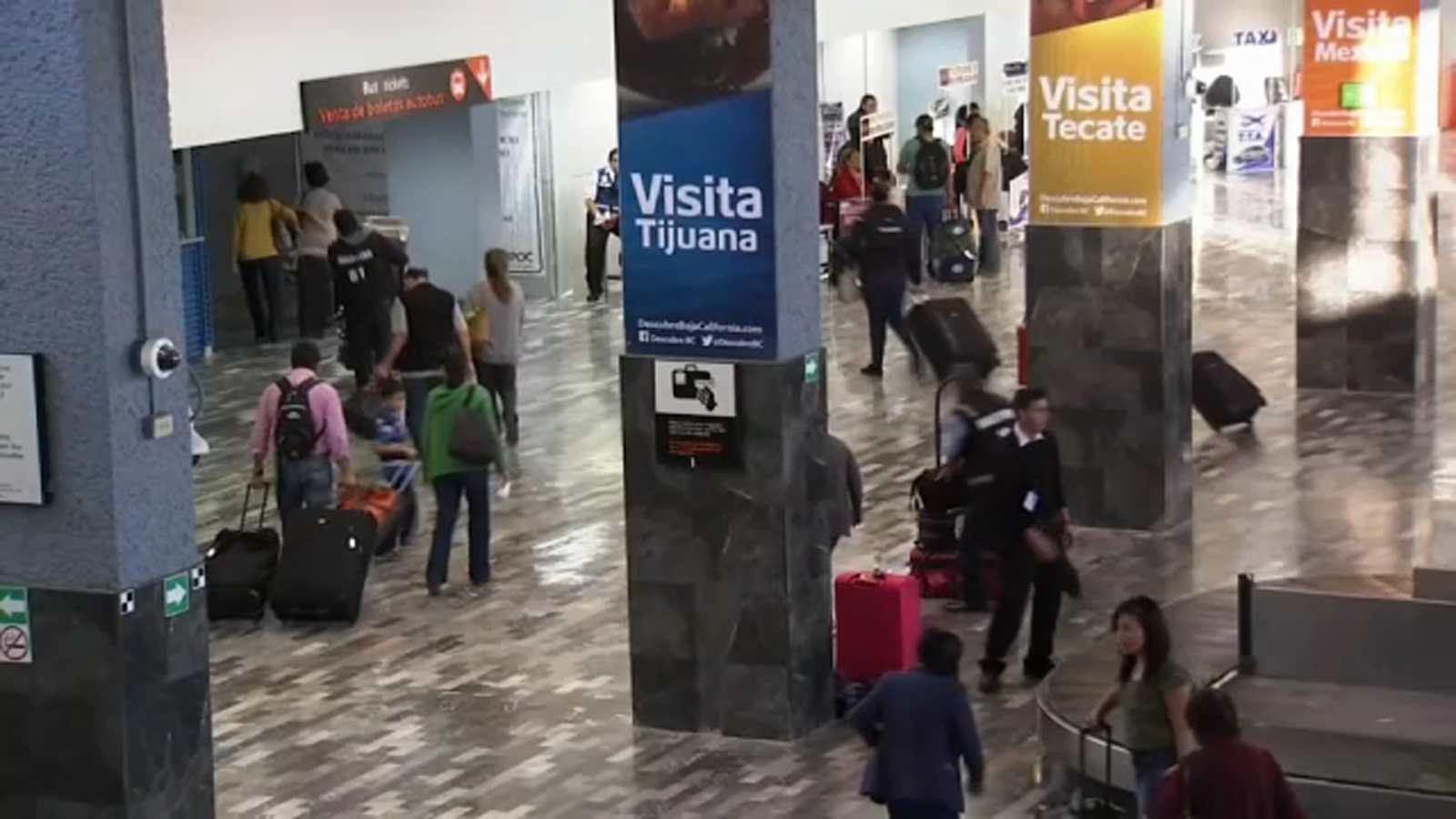#us-mexico-relations
#us-mexico-relations
[ follow ]
#drug-cartels #drug-trafficking #claudia-sheinbaum #sovereignty #tariffs #mexico #trump-administration
World news
fromenglish.elpais.com
1 month agoInstagram photo raises questions over Mexican and US versions of the downfall of drug kingpin Ryan Wedding
Conflicting official accounts and an AI-fabricated photograph have intensified uncertainty over whether Ryan Wedding surrendered to authorities or was captured in an operation.
fromenglish.elpais.com
1 month agoMexico takes the initiative on Trump's anniversary with a new mass cartel handover
Donald Trump is leading the world into a carrot-and-stick scenario only without the carrot while each nation, for the moment, does what it can in response. Early Tuesday morning, as the Republican posted AI-generated images on his social media showing European leaders listening to some kind of explanation from him about the United States' needs regarding Greenland, Mexico, a keen observer of Washington's strategies, was preparing another mass transfer of prisoners north.
US politics
US politics
fromwww.mediaite.com
1 month agoFox News Legal Analyst: Mexican President Will Have Sleepless Nights' After Maduro Arrested on Drug Charges
U.S. officials may consider unilateral operations in Mexico due to perceived Mexican inaction against fentanyl trafficking and cartels, raising concern for Mexico's leadership.
fromenglish.elpais.com
2 months agoWater dispute adds pressure to Mexico's complex bilateral agenda with the United States
As a sign of willingness, the Mexican government will begin on Monday to pay the debt mandated by the 1944 Water Treaty, which amounts to 986 million cubic meters. The commitment was made on Friday night, just days after U.S. President Donald Trump threatened to impose a 5% tariff if the water deliveries were not made. The Republican administration welcomed the agreement, under which Mexico is set to release 249 million cubic meters starting this week.
US politics
US politics
fromenglish.elpais.com
3 months agoThe White House continues to press for military intervention in Mexico to eliminate the cartels
White House officials advocate possible intervention or strikes in Mexico to confront organized crime, framing the threat as narco-terrorism despite Mexico's rejection.
fromwww.mediaite.com
3 months agoMexico's President Shoots Down Trump's Threats of Bombing Her Country
Would I launch strikes on Mexico to stop drugs? It's OK with me. Whatever we have to do to stop drugs. Mexico islook I looked at Mexico City over the weekend. There's some big problems over there. If we had to would we do there what we've done to the waterways? You know there is almost no drugs coming through our waterways anymore,
US politics
US politics
fromenglish.elpais.com
3 months agoI am not happy with Mexico': Trump would be proud' to launch strikes in neighboring country
President Trump said he would be willing to order strikes in Mexico to stop drug trafficking and criticized Mexico's role in supplying fentanyl to the United States.
US news
fromenglish.elpais.com
5 months agoLegend of the margarita reminds of shared border history between US and Mexico
The Kentucky Club endures as the lone remaining legendary border bar, preserving culinary and social traditions amid disappearing historic establishments and rising U.S.-Mexico tensions.
fromenglish.elpais.com
6 months agoMexican opposition embraces Trump's pressure to gain strength against Sheinbaum
In his guilty plea, the veteran Mexican drug lord publicly acknowledged what was already widely known: that he bribed police officials, military personnel, and politicians to operate freely in the country. The allusion to that last group, elected representatives, has sent a chill through the entire Mexican political class. The statement is brief and general, so general that anyone could use it as a weapon, even at the risk of it coming back to haunt them.
World news
fromenglish.elpais.com
6 months agoTrump puts the DEA in the line of attack to put more pressure on Sheinbaum
Donald Trump's art of negotiation relies heavily on the art of pushing his counterparts Mexico in this case to the limit. Just when, according to President Claudia Sheinbaum, it seemed that the relationship between the two nations was based on respect among equals and non-subordination, Trump launched a new challenge this week to pressure Mexico and extract even more security benefits from Washington's main trading partner.
US politics
fromenglish.elpais.com
6 months agoTrump softens hardline death penalty stance in cases against Mexican cartel leaders
The U.S. justice system is now preparing to sink its teeth into the main course: the 29 drug lords handed over by the Mexican government to Donald Trump in the early days of his administration.
US politics
fromenglish.elpais.com
7 months agoHow Mexican consulate staff struggle to defend migrants in the US while living on the brink of poverty themselves
Susana’s monthly salary has remained at $3,295 since 1998, forcing many Mexican Foreign Service employees to live below the poverty line without any salary adjustments.
Public health
fromenglish.elpais.com
8 months agoJulio Vaqueiro, journalist: Many Latinos who voted for Trump are surprised by his immigration policy'
The mood has shifted significantly on both sides of the border, becoming heated due to the intertwining of trade, immigration, and security issues, particularly under Trump's influence.
US politics
Law
fromenglish.elpais.com
8 months agoLeon Castellanos-Jankiewicz: The responsibility of gunmakers doesn't end at the factory gate'
Leon Castellanos-Jankiewicz advocates legal strategies to combat U.S. arms trafficking to Mexico, noting a Supreme Court ruling's potential implications for accountability.
fromenglish.elpais.com
9 months agoA meeting with Sheinbaum, dinner with the far right, and a photo with Our Lady of Guadalupe: Trump's new ambassador arrives in Mexico
"Thank you, Mexico!" Applause erupted from the crowd as Ronald Johnson took to the floor, greeted warmly by mariachis and marked a stark contrast from his predecessor.
US news
#sinaloa-cartel
US news
fromwww.mercurynews.com
9 months agoMexican security chief confirms El Chapo's' family members entered US in a deal with Trump administration
Family members of cartel leaders crossed into the U.S. as part of an agreement connected to Ovidio Guzman Lopez's legal negotiations with U.S. authorities.
fromenglish.elpais.com
10 months agoScrewworm fly plague opens a new front between the Trump administration and Mexico
Rollins criticized Mexico for limiting fumigation flights and imposing tariffs on necessary equipment, stating these barriers impair the joint response to the screwworm infestation.
Madrid food
[ Load more ]
